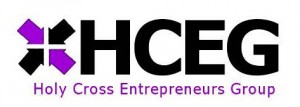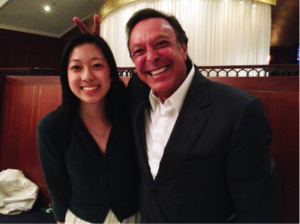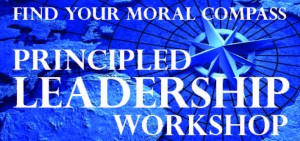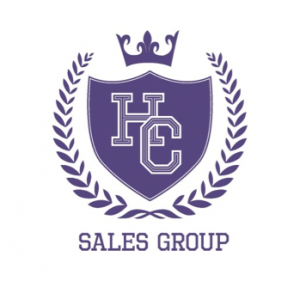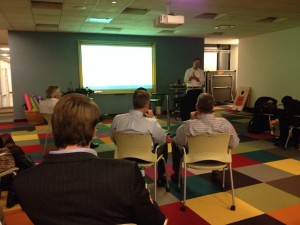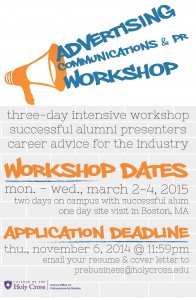What 5 traits empower entrepreneurs to create their own luck?
Ray just got off a call from Chennai, India. The call was from a business partner, who now wants to expand Ray’s book of business internationally. This good news came weeks prior to a different partners’ meeting, a meeting celebrating the past. The three original partners got back their most recent financials, and they blew their year-end goal out of the water.
 Ray Jorgensen ‘91’s firm, PMG, Inc., is in the business of helping low income communities get access to affordable health care. This mission, inspired by “men and women for others”, has earned PMG the privilege of being a top Revenue Cycle Management (RCM) firm serving the Community Health Center (CHCs) market. He has written several books and teaches healthcare practitioners about how to maximize their revenue for the healthcare services they provide. And amidst the uncertainty of health care reform, Ray and his two business partners have grown the PMG team from 3 to nearly 300 people to capitalize on an underserved, yet growing, niche market.
Ray Jorgensen ‘91’s firm, PMG, Inc., is in the business of helping low income communities get access to affordable health care. This mission, inspired by “men and women for others”, has earned PMG the privilege of being a top Revenue Cycle Management (RCM) firm serving the Community Health Center (CHCs) market. He has written several books and teaches healthcare practitioners about how to maximize their revenue for the healthcare services they provide. And amidst the uncertainty of health care reform, Ray and his two business partners have grown the PMG team from 3 to nearly 300 people to capitalize on an underserved, yet growing, niche market.
This journey supports the modern myth that entrepreneurs can control what goes on around them. It presents a story that Ray knew what he wanted to do after his 1991 graduation. It conjures a narrative that he knew exactly how to capitalize on the health care overhaul. It creates a belief that he always intended to have a business partner in India.
In fact, the opposite is true.
After Holy Cross, Ray was rejected from every law school he applied to, a non-compete clause challenged his startup’s growth, and his professional musician dreams sank.
As a result of these challenges, Ray is constantly battling an illusion of control. He adapts to uncertainty in an ever-changing market. The first step to battle this illusion is his own awareness that he cannot change things out of his power. The second step is controllable; most importantly, attitude and effort. Ray cannot affect an evolving environment, so he focuses on how to react to change. And with enough perseverance and persistence, he believes he can create his own luck too.
So how has he battled the illusion of control? How has he created his own luck? And what clues can other entrepreneurs follow to improve their chances at success?
The items below outline 5 areas in which entrepreneurs can control and in doing so create their own luck.
1) Expertise: Be a top authority in your industry
Ray credits PMG’s success in the healthcare industry to focusing on CHCs. Before this commitment, his business was scattered across many medical subspecialties from chiropractors to anesthesiologists. Although the business was diversified, there were many competitors in these subspecialties with more expertise than PMG. By focusing on being a top CHC authority, no competitor knows more than Ray’s team. In fact, as the nation’s leading provider of for CHC’s, PMG’s articles are often the only result to his team’s CHC Google searches. Although this is easy for Ray to realize looking back, how can others identify how to be an authority?
2) Information Gaps: Fill the information gaps others have missed
In 2006, PMG made the difficult decision to release the two-thirds of their book of business that were not CHCs. Although this decision sounds crazy, Ray applied his Holy Cross history major to research their hypothesis. His team validated that the government hyper funds CHCs at a rate higher than traditional fee-for-service Medicaid. PMG discovered what the competition had not: CHCs are part of the government healthcare safety net with exceptional reimbursement despite typically undesirably elevated percentages of Medicaid patients. This insight allowed Ray’s team to identify an information gap, accessible knowledge that the rest of his competitors didn’t understand. Although their 2006 book of business included many medical subspecialties, this broad knowledge allowed PMG to identify the information imbalance, which ultimately led them to focus on only CHCs. This is easy to identify in hindsight, so how can others identify and bridge the information gap?
3) Mentorship: Find a mentor to learn from the best
Before Ray started his own firm, he was learning about the entire healthcare billing business while working for a New England start up. The startup, which specialized in the RCM, allowed him to receive first-hand experience from industry experts. This was more than a job; this was a mentorship that allowed him to develop key industry knowledge, while still paying the bills for his growing family. The intellectual capital he gained over this time period served as the foundation to later start PMG with his partners. Identifying information gaps and becoming an authority may appear difficult, but finding a mentorship can significantly reduce this time and effort. While Ray was fortunate to have come across this opportunity, how can others find mentors to learn industry knowledge?
4) Complex Industry: Enter an industry with growing opportunities
Shortly after graduation, Ray took a job at Blue Cross Blue Shield, before ultimately switching to the provider side to focus on compensation maximization. The healthcare industry, with its growing demand and legal complexities, provided him a fertile environment to develop intellectual capital. The ever-changing market created new problems for established organizations, but Ray saw this adversity as an opportunity. Although Ray and his partners never knew exactly how healthcare reform would affect his business, their ability to identify problems and perceive them as opportunities, has led their team to become a top billing specialist in the CHC space. How should others narrow their search for a growing industry?
5) Passion: Choose a profession with meaning
Ray believes that everyone, rich and poor, should have access to healthcare. The healthcare industry and the CHC subspecialty, empowers him to create change in the lives of people who need it most. Yes, billing may not sound glamorous, but PMG makes a real impact every day. Although his job hasn’t always been smooth sailing and he hasn’t always had control of the helm, finding a meaningful career has allowed him to weather the storm as he awaits calmer waters.
So how do you create your own luck and start on the path to successful business?
Ray believes the first step to battle the illusion of control is to be aware of it. The second step is to control what is controllable. So create your own luck: choose a career with meaning, identify growth areas, find a mentorship, fill the information gaps, and become a top authority at what you do. It has been a 20+ year journey for Ray, from the midnight shift at Blue Cross Blue Shield to being his own boss. During this journey, he has come to the conclusion, “Life works serendipitously, but the gradual persistent development of expertise is repeatable.”
At his team’s celebratory dinner last month, he made a toast. The toast was simple – “to the complexities of Healthcare.” Although PMG continues to blow their 2014 goals out of the water, it could be said that Ray actually prefers to be in the water. He gave up swimming against the ambiguity; in fact, Ray has grown fond of swimming with it.
Ray Jorgensen ‘91 has been President and CEO of Priority Management Group, Inc. (PMG) since 1998. Responsible for oversight of consulting operations strategic leadership, national speaking, and board work for PMG’s companies, Ray has personally trained thousands from all 50 states on coding, billing, and reimbursement in addition to authoring several books and dozens of articles.
— — —
Thanks to our writer, Andrew Marzo ’14. He is an aspiring entrepreneur who believes that founders do not find their business, they create opportunities. He suggests that the prevalent entrepreneur narrative is a myth, and believes a new narrative is necessary. Through articles, conversations, and interviews, Andrew hopes to deconstruct this illusion and leave behind breadcrumbs for future entrepreneurs to discover on their own journey.
Check out the new COES instapage and follow us @HCPrebusiness
Watch for our next blog post…
Cassie Gevry
Associate Director, Entrepreneurial Studies


